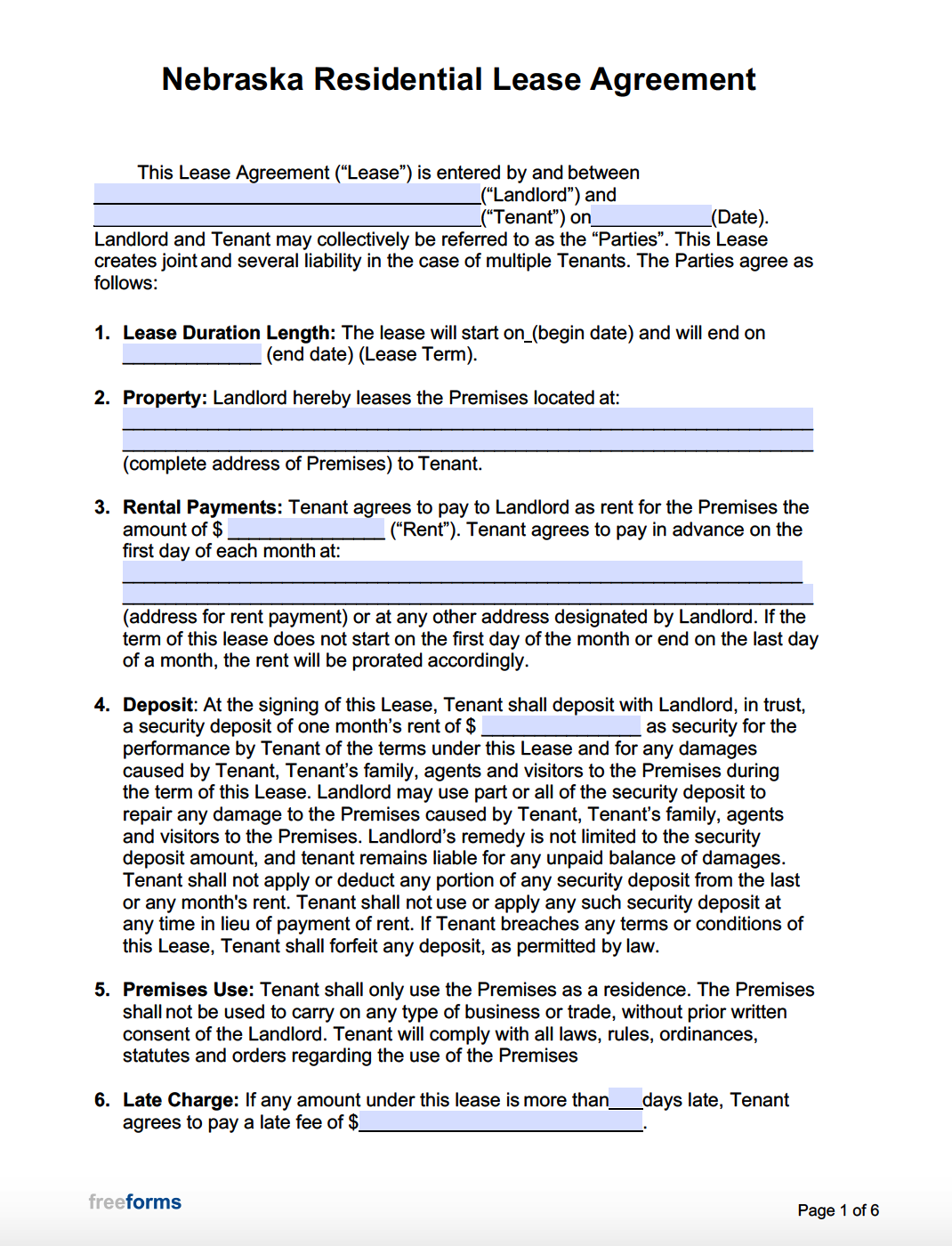The Nebraska lease agreement predicates the facts solidifying a contract to essentially rent a residence for a fixed amount of time and money. The document serves to protect the lessor and lessee by spelling out the rights and responsibilities of each of the parties. Which contract to utilize depends on the various lease types that can better serve each need.
Lease Agreements By Type
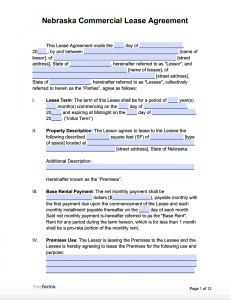 Commercial Lease Agreement – Institutes a legal understanding for a business to rent a building for an intended time span.
Commercial Lease Agreement – Institutes a legal understanding for a business to rent a building for an intended time span.
Download: PDF, Word (.docx)
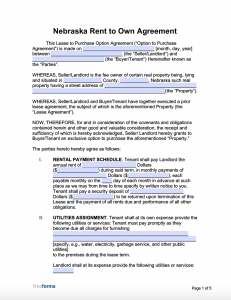 Lease to Own Agreement – Documents the exchange of right of use of a home for financial compensation. This particular lease has the added benefit of the first right of refusal for the lessee to purchase the residence when the lease term has ended.
Lease to Own Agreement – Documents the exchange of right of use of a home for financial compensation. This particular lease has the added benefit of the first right of refusal for the lessee to purchase the residence when the lease term has ended.
Download: PDF, MS Word (.docx)
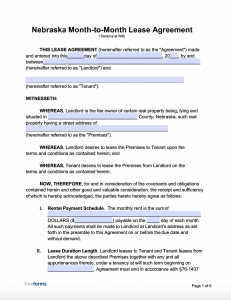 Month-to-Month Lease – Authorizes the extension of the use of a residential unit for a specified dollar amount and interval with an option to revoke at any time with thirty (30) days’ notice.
Month-to-Month Lease – Authorizes the extension of the use of a residential unit for a specified dollar amount and interval with an option to revoke at any time with thirty (30) days’ notice.
Download: PDF, Word (.docx)
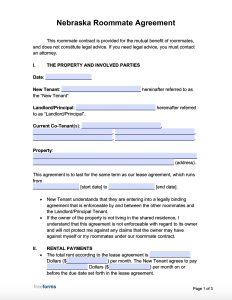 Roommate Agreement – Produces a written concurrence for one to employ the use of part of a dwelling for a designated period and price.
Roommate Agreement – Produces a written concurrence for one to employ the use of part of a dwelling for a designated period and price.
Download: PDF, Word (.docx)
Standard Lease Agreement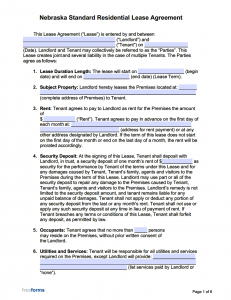 – Makes an official account of the terms and conditions connected with the leasing of a residential unit.
– Makes an official account of the terms and conditions connected with the leasing of a residential unit.
Download: PDF, Word (.docx)
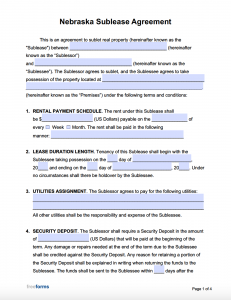 Sublease Agreement – Contracts a substituted entity to gain the right to live in a property granted from a current lessee.
Sublease Agreement – Contracts a substituted entity to gain the right to live in a property granted from a current lessee.
Download: PDF, Word (.docx)
Landlord-Tenant Laws
The Nebraska Uniform Residential Landlord and Tenant Act (§ 76.1401 – § 76.14,111) dissects the full range of regulations instituted on the state level pertaining to lessee/lessor circumstances.
Required Landlord Disclosures
Identification of the Landlord or Authorized Personel (§ 76-1417) – The current address and name of any owner or managing administrator for the property must be brought to the attention of any possible tenant in writing before the signing of a contract.
Lead-Based Paint (42 U.S. Code § 4852d) – Real estate constructed before 1979 may present the possibility of lead-composed paint contamination. Proper safety measures and symptoms of contact with the substance are to be reviewed within distributed informational materials to any potential tenant.
When is Rent Late?
Rental payments are to be remitted to the landlord on the date designated in the leasing paperwork. There is no allocated amount of days past the due date that the state allows the tenant to be delayed with the payment (§ 76-1414).
Late Fees
State statutes do not incorporate an established maximum amount an owner can charge for late payments on rent. For additional overdue payment fees to be justifiable, it must be established in the signed lease agreement (§ 76-1414).
NSF Checks
Checks circulated to compensate rental costs that are returned for insufficient backing will require the tenant to pay added fees to reconcile the issue. Each NSF check obligates the issuer to pay a $10 fee, any incurred banking fees, and the original check amount to the landlord (§ 28-611).
Security Deposit Maximum
The highest amount an owner can insist upon for a secured deposit is equal to one months’ rental payment. Request for a supplementary pet deposit is allowable, but not to exceed one-quarter of one months’ rent (§ 76-1416).
Security Deposit Return
When the leasing period has expired, the landlord has fourteen (14) days to restore the security deposit amount to the lessee. For instances requiring the owner to maintain a portion of the deposit for unpaid rent or necessary repair, written notification deductions, along with the balance, are to be mailed to the tenant’s provided forwarding address (§ 76-1416).
Landlord’s Entry
Entering the premises during a reasonable time of day for routine maintenance is approved with advance notice of twenty-four (24) hours by the owner or managing representative. In the case of emergency, notification is not mandatory to enter the domicile (§ 76-1423).
